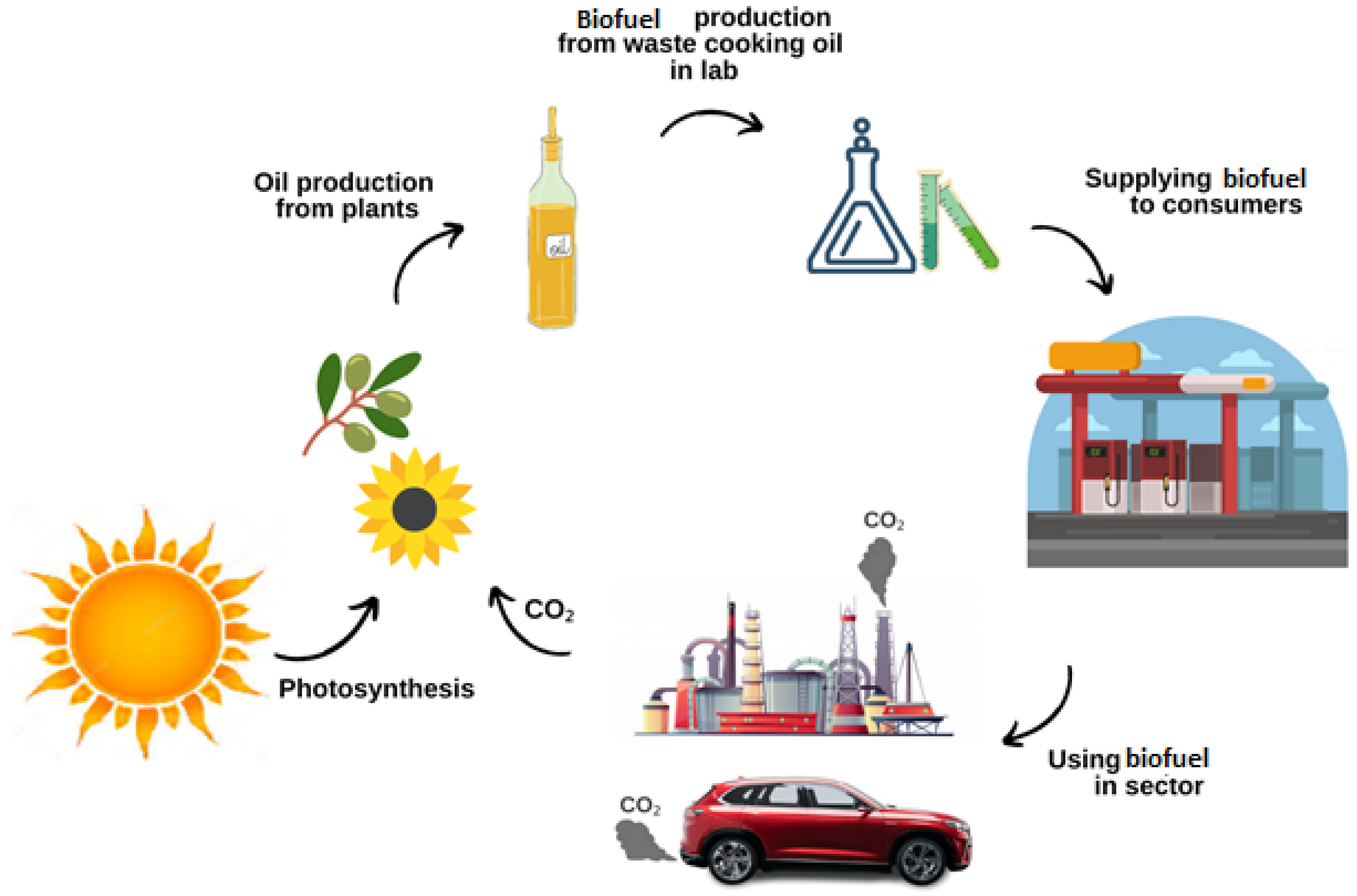In an increasingly eco-conscious world, businesses are recognizing the importance of not only adopting sustainable practices within their operations but also contributing to global environmental goals. Unity Foods, a leading company in the food processing and agribusiness sector, has taken a significant step towards sustainability by shifting its focus towards the export of biofuel feedstock. This move aligns with the growing demand for renewable energy solutions and positions Unity Foods at the forefront of the green energy revolution.
By tapping into the sustainable biofuels market, Unity Foods is not only contributing to reducing carbon emissions but is also embracing new opportunities within the renewable energy sector. This transition is a strategic response to both the global energy shift towards sustainability and the need for businesses to integrate environmentally friendly practices into their core operations.
A Sustainable Approach to Biofuel Production
Biofuels, which are derived from renewable organic materials such as plant-based feedstocks, are considered a cleaner alternative to fossil fuels. Unlike conventional fuels, biofuels contribute significantly less to carbon emissions, making them a pivotal component in the global transition to greener energy. Biofuel feedstocks can come from a variety of sources, including agricultural waste, crops like corn or soybeans, and other organic materials.
Unity Foods’ move into the biofuel feedstock market is centered around sustainability, leveraging the company’s existing agricultural supply chains to produce high-quality, renewable biofuel materials. By producing biofuel feedstocks from organic by-products and agricultural residues, Unity Foods can help address the growing demand for renewable energy while reducing waste and minimizing environmental impact.
Diversification of Business Model
Unity Foods, known for its leadership in the food industry, has recognized the potential of expanding into the biofuel sector as a way to diversify its business and stay ahead of industry trends. With increasing global pressure to reduce reliance on fossil fuels and shift toward more sustainable energy sources, the demand for biofuel feedstock is growing rapidly. This shift provides Unity Foods with a unique opportunity to tap into new markets and enhance its product offerings by focusing on sustainable energy solutions.
Through this initiative, Unity Foods aims to serve both local and international markets by exporting biofuel feedstock to countries looking to increase their renewable energy capacity. The company is well-positioned to meet the rising demand for sustainable biofuels, especially given the global focus on reducing greenhouse gas emissions and mitigating the effects of climate change.
Environmental Benefits of Biofuel Feedstock
The environmental advantages of biofuels, particularly those derived from sustainable feedstocks, cannot be overstated. Traditional fossil fuels such as coal, oil, and natural gas contribute significantly to greenhouse gas emissions, driving climate change and environmental degradation. In contrast, biofuels derived from organic sources release significantly fewer pollutants and greenhouse gases during production and consumption.
By shifting to biofuel feedstocks, Unity Foods is helping to reduce the carbon footprint associated with energy consumption, making a positive impact on global climate goals. Additionally, producing biofuels from agricultural waste and residues contributes to the reduction of waste in landfills, further minimizing the environmental impact.
Moreover, the production of biofuel feedstocks supports circular economy principles by turning waste into valuable resources. By utilizing organic by-products and waste materials from its food production processes, Unity Foods is fostering a more sustainable and closed-loop system, contributing to environmental preservation and reducing the company’s overall ecological footprint.
Economic Growth and Export Opportunities
The shift towards biofuel feedstock production offers significant economic benefits to Unity Foods, both domestically and internationally. By tapping into the global biofuels market, the company is opening up new revenue streams through exports, particularly to countries that have made substantial investments in renewable energy infrastructure.
Countries across Europe, North America, and Asia are increasingly turning to biofuels to meet their renewable energy targets. This surge in demand has created a favorable export market for companies like Unity Foods. By capitalizing on this demand, Unity Foods not only contributes to the global renewable energy transition but also strengthens its position in the international market.
Additionally, the expansion into the biofuels sector allows Unity Foods to create new jobs, stimulate local economies, and enhance the livelihoods of communities involved in the production of biofuel feedstock. This move is in line with Unity Foods’ broader corporate social responsibility (CSR) goals, which aim to improve the well-being of its stakeholders while driving sustainable growth.
Technological Innovation and Research
In its push towards sustainable biofuel feedstock production, Unity Foods is investing in research and technological innovation. The company is exploring advanced agricultural techniques and processing methods to optimize the quality and yield of biofuel feedstocks. These innovations are expected to increase efficiency, reduce costs, and improve the overall sustainability of biofuel production.
Unity Foods is also focusing on sustainable farming practices, such as precision agriculture and agroforestry, to ensure that the production of biofuels does not come at the expense of food security or environmental health. By implementing these practices, the company can produce biofuel feedstocks in a way that minimizes soil degradation, conserves water, and promotes biodiversity.
In addition to this, Unity Foods is working on developing more sustainable biofuel conversion technologies. These technologies aim to make the conversion of biofuel feedstocks into usable energy more efficient and environmentally friendly, helping to further reduce the carbon footprint of the entire biofuels supply chain.
Future Outlook: Unity Foods and the Green Energy Revolution
Unity Foods’ commitment to exporting sustainable biofuel feedstock marks a pivotal step in the company’s transformation toward a more sustainable and diversified business model. With the growing global demand for renewable energy, the company is well-positioned to capitalize on the biofuels market and further strengthen its leadership in the food and agriculture sectors.
Looking ahead, Unity Foods plans to expand its biofuel production capabilities, collaborate with international partners, and continue to invest in research and development to optimize sustainability and efficiency. By doing so, Unity Foods not only plays a vital role in the renewable energy transition but also enhances its long-term competitiveness in an evolving global economy.
This move is a clear example of how businesses can drive both environmental and economic sustainability, demonstrating that companies can innovate and thrive by embracing green energy solutions. As Unity Foods continues to lead in both the food industry and renewable energy sectors, it is paving the way for a more sustainable future.
Conclusion
Unity Foods’ shift towards exporting sustainable biofuel feedstock represents a forward-thinking approach to sustainability and diversification. By tapping into the growing demand for renewable energy, the company is not only reducing its carbon footprint but also contributing to the global transition to greener energy sources. As it continues to innovate and invest in sustainable technologies, Unity Foods is playing a crucial role in promoting both environmental sustainability and economic growth, ensuring its place at the forefront of the green energy revolution.




